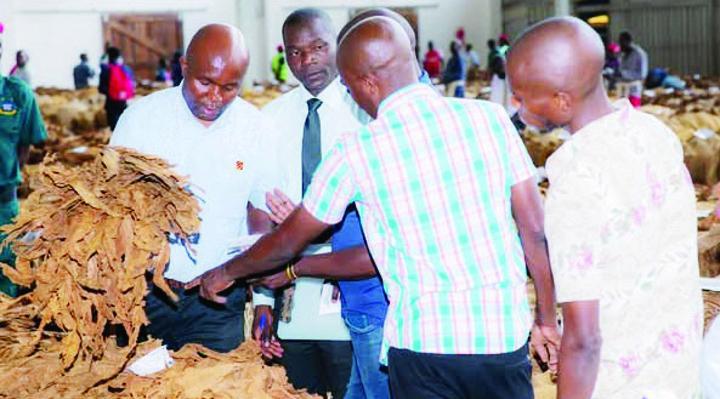Africa-Press – Malawi. Tobacco earnings from this year’s market continue to fall below last year’s figures, with the country generating $283.6 million in eleven weeks of sales this year ending Friday April 20, 2025.
The country generated over $326 million from tobacco sales during the same period last year.
Despite the lower earnings, statistics from the Tobacco Commission (TC) indicate that this year the country has sold greater volumes in eleven weeks, at over 113 million kilogrammes (kg) compared with over 112 million kg sold in 2024.
The poor performance comes at a time when this year’s market continues to record lower prices being offered compared with last year.
According to TC figures, the national average price for all types of tobacco recorded in week eleven was $2.51, which is lower compared with $2.92 recorded during the same period last year.
Burley tobacco continues to dominate the market, with over 104 million kg sold so far on both the auction and contract markets, generating over $255 million at an average price of $2.46 in week eleven.
Despite more volumes being sold this year, last year’s 99 million kg of burley tobacco generated $284.4 million at an average price of $2.86.
So far, the country has earned over $25 million from flue-cured tobacco from eight million kg of the leaf sold, at an average price of $2.43.
Tobacco Commission spokesperson Telephorus Chigwenembe said the market is recording a steady flow of tobacco, indicating good volumes of the crop this year.
“We also want to remind farmers and prospective farmers that preparation for the next season must start early.
“Right now, we have opened the tobacco licensing period, starting June 23 and ending in October. Farmers should not wait until October to get their licences but rather start early so that they can focus on other activities ahead of the forthcoming tobacco season,” Chigwenembe said.
In an earlier interview, economist Marvin Banda emphasised the need for Malawi to diversify its export base to reduce overreliance on tobacco and ensure sustainable foreign exchange inflows.
“This has implications for our foreign exchange earnings. With increasing demand for imports and a shrinking production base, low foreign exchange earnings will negatively impact macroeconomic stability— especially because tobacco remains the number one foreign exchange earner for the economy,” Banda said.
For More News And Analysis About Malawi Follow Africa-Press






